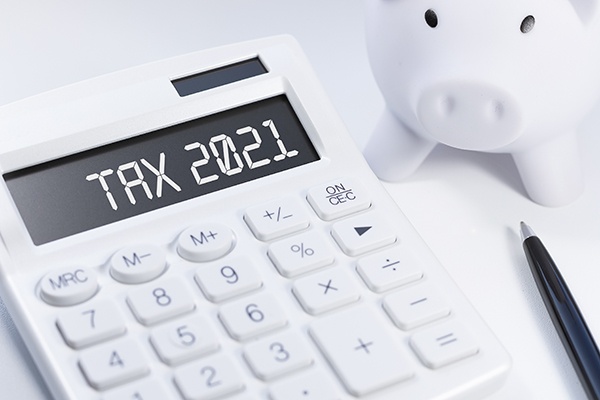By Jean Chatzky* Everybody breathe. You’ve just been given a month’s reprieve, thanks to the IRS. Because the agency is mired in paperwork, the deadline to file federal and state income taxes has been moved back until May 17. Still, there’s no time like today to get your paperwork in order and get to it. If you prefer to let a professional handle it, there’s still time to bring everything to a tax preparer who can help ensure you are taking all the deductions and claiming every credit you qualify for.
Some lower and middle-income filers have already discovered a bit of good news, in that they are eligible for a larger return than in previous years because of missed or partial economic impact payments, also known as stimulus funds, according to The Tax Foundation, an independent tax policy nonprofit.
Here’s what you need to know to make sure you aren’t leaving money on the table.
Recovery rebate credit
There are at least three ways some Americans can receive additional money in the form of a refundable tax credit on their 2020 individual income tax returns. First, if you didn’t receive one or both of the stimulus payments because of processing delays or other errors, you can claim the rebate recovery credit on your 2020 tax return.
Also, if you earned less money last year than in 2019, you can use your 2020 adjusted gross income when calculating any stimulus-related tax credits you are owed. When determining who was eligible for the stimulus payments in 2020, the government used 2019 and 2018 tax returns to decide who qualified. That means if you received a partial stimulus payment or no payment at all because your income in 2019 was higher than the threshold, you may be able to claim an additional payment if you earned less in 2020 and fell below that threshold.
People who didn’t receive a payment for an eligible dependent, which could include some teens and new babies, should also be able to receive the credit on their returns.
Stimulus payments not taxable income
More good news: Adjustments related to the stimulus payments are only made in a tax filer’s favor, so you won’t see an increase in your tax liability related to those payments, according to The Tax Foundation. Also, people who received a stimulus payment in 2020 should have received a letter informing them that the 2020 stimulus payments are considered tax credits, which means they are not taxable income. Unemployment payments, however, will be taxed.
Taking the home office deduction
With millions of Americans losing their jobs in 2020 because of the pandemic, you may have added a side gig or became officially self-employed and now call part of your home your office. While the eligibility rules for claiming a home office deduction relaxed in 2018, there’s little wiggle room. Employees working from home because of COVID-19 aren’t eligible.
People who are self-employed can take the deduction if they use part of their home ‘regularly and exclusively’ for business. While your home office doesn’t need to be a separate room, it has to be an area where you don’t do anything else. That means it can’t be a kitchen table. Those who qualify can deduct portions of rent or mortgage interest, utilities and insurance, based on the part of your home used as a home office. Or, you can take what’s known as the simplified option that’s worth $5 per square foot of a home office, up to 300 square feet, for a maximum deduction of $1,500.
Make $72,000 or less? File for free
If you have an adjusted gross income of $72,000 or less, you are eligible to use the IRS Free File Program, a public-private partnership between the Internal Revenue Service and tax preparation and filing software groups who provide products at no cost to those who qualify. Learn more at https://www.irs.gov/filing/free-file-do-your-federal-taxes-for-free
* This guest article is from the “Your Money Blog” in ‘Mid Oregon’s Digital Banking Credit Savvy resource’. It is made possible by Savvy Money. “Tax Tips in the Age of Corona” by Jean Chatzky with Casandra Andrews was published in March 2021.





